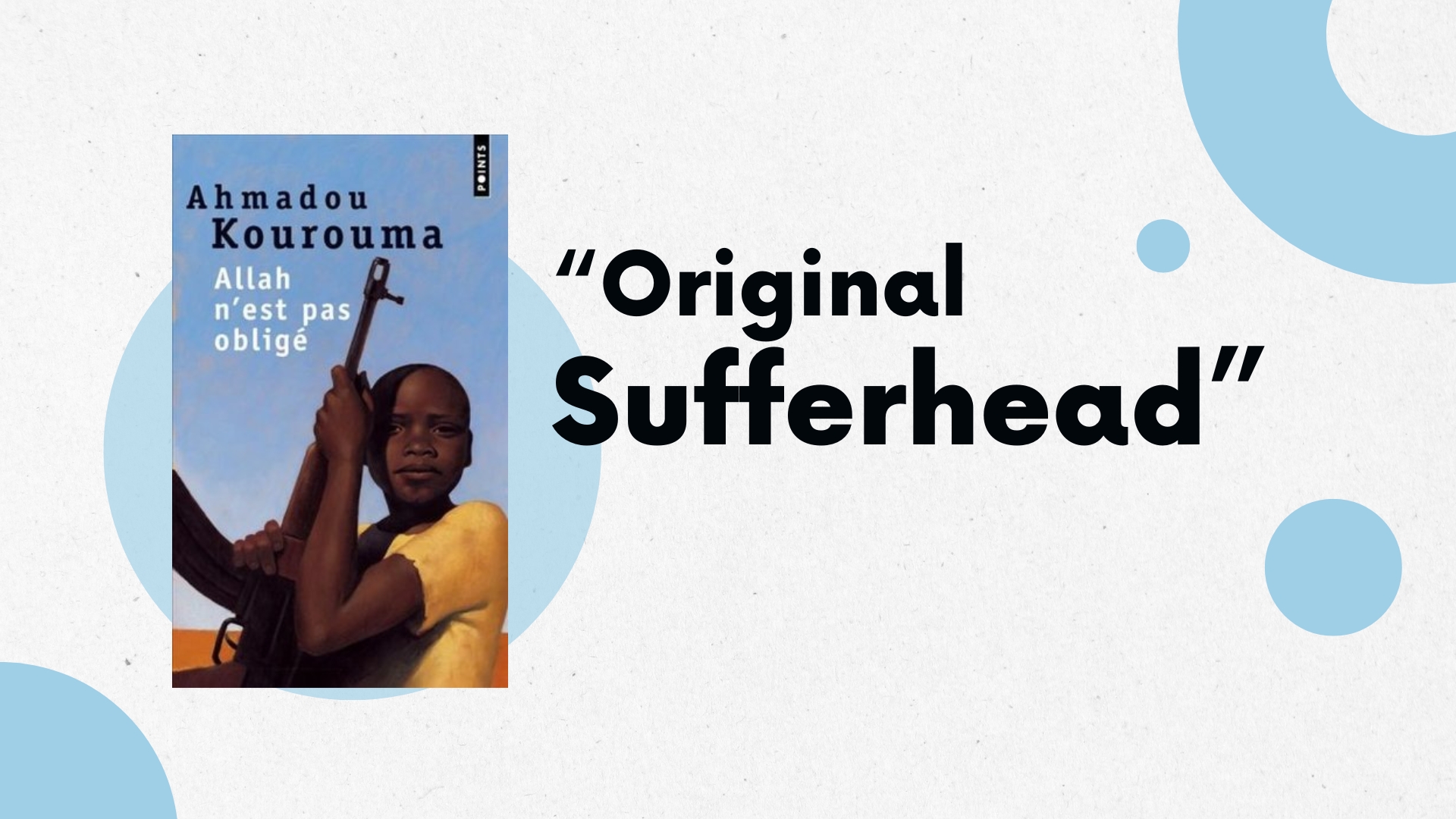Citation:
Jemiluyi, Omotayo. 2025. “Original Sufferhead: The Boy-Child and Masculine Sufferings in Ahmadou Kourouma’s Allah n’est pas obligé and Les Soleils des Indépendances.” French Cultural Studies, 36(1), 61–78. https://doi.org/10.1177/09571558241262682.
Summary:
This article examines the construction of masculinity and the lived experiences of the boy-child in two prominent works by Ivorian author Ahmadou Kourouma: Allah n’est pas obligé and Les Soleils des Indépendances. Through a close literary analysis, the study investigates how Kourouma portrays male characters who are burdened by societal expectations, identity crises, exploitation, and emotional suppression in a postcolonial African context. The metaphor of “original sufferhead,” borrowed from Fela Kuti’s iconic song, serves as a lens through which the article explores masculinity as a space of pain, precarity, and imposed endurance.
Behind the Work:
This article began as an independent study during Fall 2023 during my M.A. in French at the School of Languages, Literatures, and Cultures (SLLC), University of Missouri. I had already been studying Ivoirian identity and resistance through music—particularly in the songs of Tiken Jah Fakoly—and wanted to extend that exploration into literature and that was where Ahmadou Kourouma came in.
The idea of pursuing an independent study was suggested by my advisor, Dr. Muratore, to whom I owe tremendous gratitude for her ceaseless support, generous feedback, and fast responses that have been very instrumental in shaping this work and that of many others. At first, I had no clear direction of what this independent study on Ivoirian literature would be but as someone who is very passionate about masculinity, I followed that instinct and it led me to Kourouma’s portrayals of broken manhood and fractured identity.
To make the project even more compelling, I decided to incorporate Fela Anikulapo Kuti’s song Original Sufferhead as a metaphorical anchor. That phrase captured everything, ranging from the burdens of boyhood to the fatigue of manhood and the structural violence of a failing postcolonial state. The idea clicked and the article, as I like to say, baked itself like a perfect cookie!
Key Ideas:
- Masculinity in Kourouma’s fictions is not a position of power, but of precarity, pain, and public performance.
- The boy-child in Allah n’est pas obligé is both victim and vessel, shaped by war, loss, and disillusionment.
- Fama, in Les Soleils des Indépendances, becomes a symbol of fractured authority, reproductive anxiety, and postcolonial disempowerment.
- Fela Kuti’s “original sufferhead” provides an allegorical frame for constructing African manhood as socially constructed suffering.
Relevance:
This work contributes to African masculinity studies, postcolonial literary criticism, and gendered readings of francophone African literature. It speaks to scholars of African studies, trauma and identity studies, as well as those interested in how literature articulates the silent burdens carried by men in transitional societies.
Read the Full Article:
Click here to access the full article


